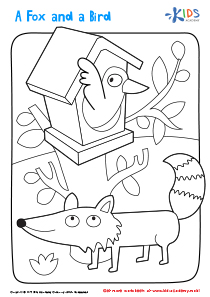Easy Tracing Shapes worksheets activities for Ages 7-8
1 filtered results
-
From - To


Drawing with a Little Monster Worksheet
Easy Tracing Shapes worksheets activities are a fundamental step in the early learning and development of young children. These simple yet effective exercises are designed to enhance a child's fine motor skills, spatial awareness, and understanding of geometric shapes. By engaging in Easy Tracing Shapes worksheets activities, children embark on a journey of discovery and learning that lays the groundwork for more complex skills in reading, writing, and mathematics.
One of the primary benefits of Easy Tracing Shapes worksheets activities is the development of fine motor skills. As children trace over different shapes, they learn to control their pencil with precision, which is crucial for later skills like writing. This repetitive practice strengthens their hand-eye coordination and encourages the development of muscle memory, making future tasks that require precision, such as drawing and writing letters, easier to master.
Moreover, Easy Tracing Shapes worksheets activities introduce children to basic geometric shapes such as circles, squares, triangles, and rectangles. This early exposure helps children recognize and differentiate between shapes, fostering spatial awareness. Understanding the properties and relationships of shapes is a foundational math skill, which these worksheets help develop in a fun and engaging way.
Additionally, these worksheets activities support cognitive development. As children concentrate on following the lines of each shape, they enhance their focus and attention to detail. This practice of concentration and perseverance is invaluable, not only in academic settings but in everyday problem-solving scenarios as well.
Easy Tracing Shapes worksheets activities also offer an opportunity for creativity and expression. After mastering the basic tracing, children can be encouraged to color or decorate the shapes, combining the skills of fine motor control with artistic expression.
In summary, Easy Tracing Shapes worksheets activities are a simple, yet incredibly effective tool in early childhood education. They not only prepare children for more advanced academic skills but also encourage a love for learning through interactive and enjoyable exercises.
 Assign to the classroom
Assign to the classroom












